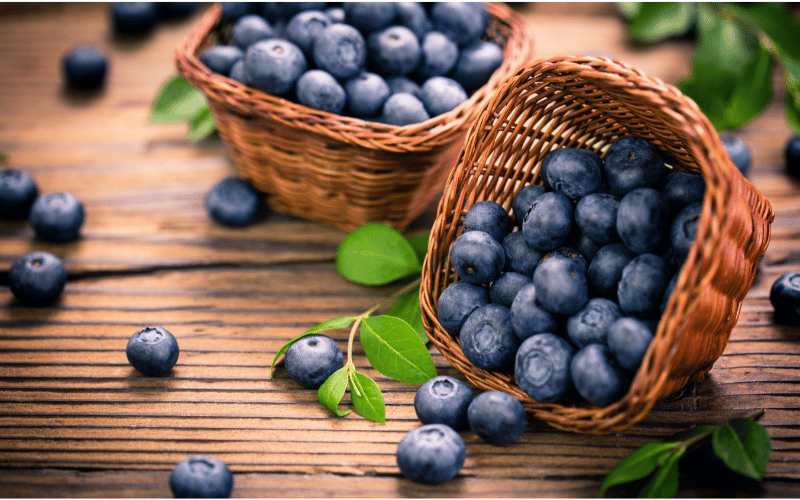6. Blueberries: Nature’s Tiny Power-packed Gems

When you glance at a blueberry, its small stature might deceive you. But delve deeper, and you’ll uncover a world of nutrition waiting to bolster your health. These tiny berries are renowned for their rich anthocyanin content, a type of flavonoid that imparts the blue hue and acts as a potent antioxidant. For those battling duodenitis, the anti-inflammatory properties of these antioxidants offer a protective shield against the irritation and inflammation of the duodenal lining.
But the story doesn’t end there. Blueberries are a treasure trove of fiber and vitamins, particularly vitamin C and K. The fiber aids in digestion, ensuring smooth bowel movements and alleviating strain on the inflamed duodenum. On the other hand, the vitamins play an instrumental role in collagen formation and bone health respectively.
An interesting tidbit about blueberries is their potential cognitive benefits. Research has indicated that the compounds found in these berries might improve memory and cognitive functions. While this may not directly relate to duodenitis, it showcases the holistic health benefits of including blueberries in one’s diet. (6)